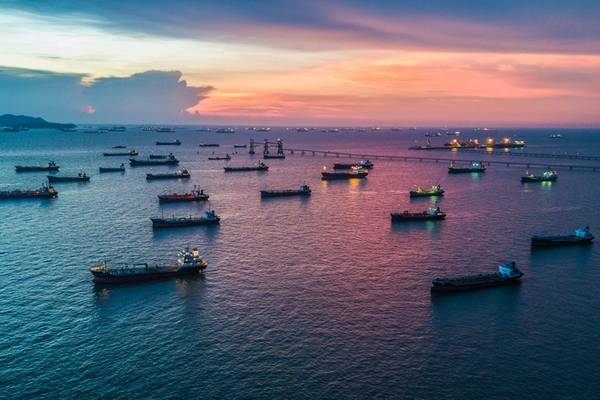Book and Claim Registry Launched
Nov 14, 2024

© Kalyakan / Adobe Stock
The Mærsk Mc-Kinney Møller Center for Zero Carbon Shipping (MMMCZCS) and RMI (formerly Rocky Mountain Institute) are launching Katalist, a not-for-profit ‘book and claim’ registry designed to accelerate the shipping industry’s decarbonization journey.
Regulations to reduce the carbon intensity of the marine industry are being introduced by both the EU and the IMO. Katalist aims to accelerate the process by connecting shipping companies adopting lower emission fuels with cargo owners looking for more sustainable supply chains.
Book and claim is a chain-of-custody model that separates a product from its sustainability benefits and transfers them to another party through a registry. This enables customers to claim the environmental benefits of a product without physically receiving it.
“As a result, cargo owners willing to pay a green premium for low emission maritime transport services can reliably use Katalist to achieve that goal, while ship operators using low emission fuels can use it to access a broader market of freight customers willing to pay an environmental supplement,” said Bo Cerup-Simonsen, CEO of MMMCZCS. “Moreover, the registry will help drive investments in lower-emission fuels, boosting commercial availability.”
The registry enables freight customers to receive transparent information about the savings they’ve obtained in a consistent, auditable format across multiple carriers. Katalist also sets strict criteria, ensuring every token booked on the registry corresponds to low-emission fuels used during a voyage.
Katalist gives carriers access to a broad customer base and reduces the administrative burden of selling low emission transport. It also provides them the flexibility to bunker any available alternative fuel without concern for whether their freight customer will be willing to cover the cost.
Katalist has already attracted attention from cargo owners as the Zero Emission Maritime Buyers Alliance (ZEMBA) members will use Katalist to facilitate the claiming of sustainable marine fuel tokens generated through ZEMBA’s first tender in 2025 and 2026.
Katalist was designed in partnership with the Energy Web Foundation using experience gained from the development of a range of chain-of-custody models, including the Sustainable Aviation Fuel Registry (SAFc). Over 25 organizations from across the maritime value chain have also contributed to the development and testing of the system and confirm the registry as a critical enabler within the shipping decarbonization ecosystem.
shipping
Cargo
Decarbonization